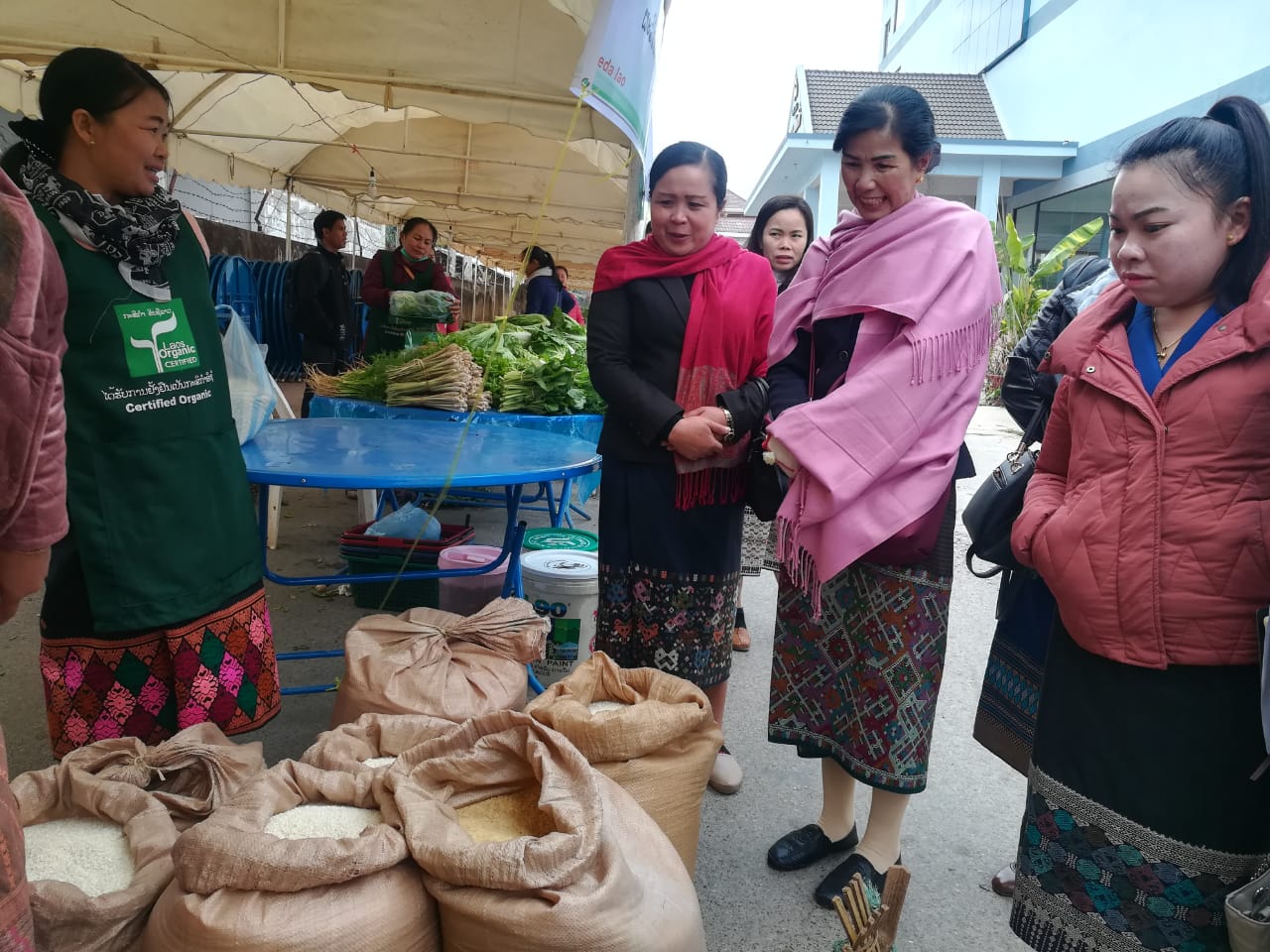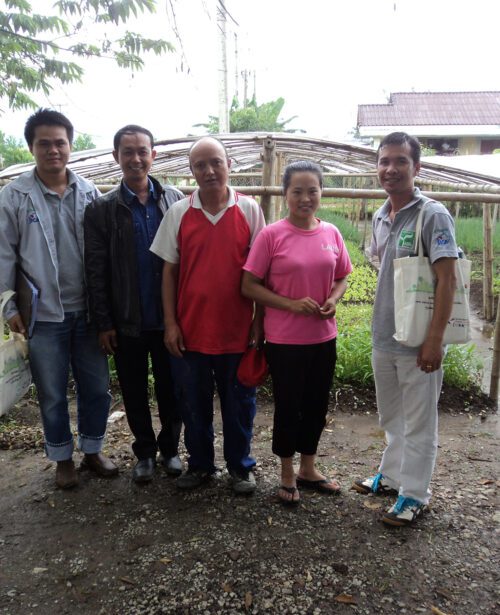““When I used chemicals, my health was not good,” says Phonexay Thammavong, a farmer from Horkang village in Phaxay district, who would use pesticides to address an insect problem. When a program promoting organic agriculture came to her village, she was very interested and consulted her family, who agreed that they would participate in the program.
Launched by Sustainable Agriculture and Environment Development Association (SAEDA) in partnership with Bread of the World, the Commercial Organic Farming and its Institutionalisation (COFI) program was held across five districts in the province of Xiengkhouang, Laos PDR, to help improve the income of smallholder farmers through chemical-free farming and marketing for their agroecological produce.
Xiaveu Yiaveu from Phonthong village in Paek district was similarly drawn to the project. A housewife and mother, she took care of her family but had no income to speak of. They relied on their small piece of land to grow food for her family, and if there was surplus, she would sell those. When her village was identified as one of the project sites, she also did not hesitate to join.
Both Xiaveu and Phonexay learned a lot from SAEDA’s COFI program to support their growth as organic farmers, appreciating the support regularly extended to them by the project technical staff. Xiaveu learned integrated farming systems, crop rotation, organic gardening for dry and wet seasons, bio-extract, and bio-composting techniques, while Phonexay learned how to apply Sustainable Rice Systems in her rice fields. They enjoyed cost savings because the techniques they learned did not rely on harmful, expensive inputs.
Soon the two women saw improvements in the quality of their soil and, inevitably, in their production. Xiaveu is able to sell her harvest at the organic market and to restaurants, earning 100,000 to 200,000 kips daily, while Phonexay earns 16 million kips for the four tonnes of rice that she sells.

Their neighbors became interested in also learning their organic farming techniques, and Xiaveu and Phonexay were more than happy to share what they knew and extend the benefits to more people. “Now, many have stopped using chemicals,” says Phonexay. “And households have better income.”
“I am so happy with my job,” beams Xiaveu, who does the farming on her own and plans to expand her organic farm. “It’s not a heavy job… I have time for relaxing. I can sell and consume my produce, which is good for my health.”
Phonexay echoes this sentiment. “After I turned to organic farming, my health improved.”
(The stories of Xiaveu and Phonexay are adapted from the “10 Model Farmers on Organic Agriculture”, with permission from Sustainable Agriculture and Environment Development Association.)”


